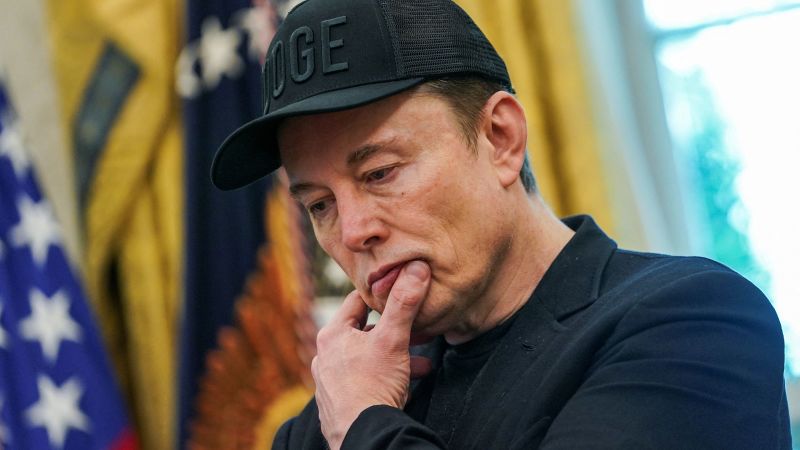
President Donald Trump has begun to view Elon Musk, the billionaire entrepreneur and CEO of Tesla and SpaceX, as an unpredictable figure. With Musk announcing plans to establish an “America Party,” dissatisfaction with the current state of the Republican Party is becoming increasingly evident. This new political initiative raises questions about its potential impact on Trump’s coalition and the broader political landscape in the United States.
Musk’s shift in allegiance from Trump’s Republican Party to his own party has been marked by public insults and a clear withdrawal of financial support for Republican candidates. This development is particularly significant as Musk holds substantial financial resources that could influence electoral outcomes. According to John Kenneth White, a professor emeritus of politics at Catholic University, Musk’s dissatisfaction with Trump could lead to detrimental effects on the Republican Party. He argued, “If they become dissatisfied, as Musk has clearly become dissatisfied with Trump, then you get this situation where he can say, ‘I’m going to withhold my money from Republican candidates.’”
Musk’s motivations seem to align with a growing sentiment among American voters who feel disillusioned with both major political parties. White noted that dissatisfaction has been a persistent theme in U.S. politics, particularly since the rise of the Tea Party in 2010. This negative partisanship, where voters oscillate between parties due to dissatisfaction, reflects a broader trend of discontent. Musk’s potential party could tap into this vein by positioning itself as an alternative to the existing options.
Historical Context and Third Party Challenges
The phenomenon of third parties in the U.S. is not new. Historical examples include the Bull Moose Party and the Dixiecrats, which emerged in response to specific grievances. White draws parallels between Musk’s initiative and the political movements of the past, particularly that of Ross Perot, who capitalized on public discontent in the early 1990s. Perot’s focus on issues like deficit spending resonates with Musk’s current rhetoric about national debt and fiscal responsibility.
Nevertheless, the structural challenges that third parties face in the U.S. cannot be overlooked. White pointed out that many third-party movements have struggled to gain traction due to the electoral system, which favors the two major parties. “Election laws favor both parties, because they write them,” he explained, indicating that Musk’s attempt to create a new party may encounter significant obstacles.
The Fracturing Trump Coalition
Trump’s coalition, once a formidable force, appears to be fracturing. Similar to former President Grover Cleveland, who experienced a decline in support during his second term, Trump faces discontent within his base. White notes that Trump’s attempts to consolidate power have led to a lack of dissent within the party, creating an environment where any alternative, like Musk’s America Party, could find a receptive audience.
Musk’s erratic political behavior adds another layer of complexity. His motivations seem to oscillate between fiscal conservatism and social issues, making it challenging to predict the long-term viability of his political ambitions. “He’s forming this party today, and tomorrow he may abandon the whole idea,” White remarked, emphasizing the unpredictable nature of Musk’s political aspirations.
The question remains whether Musk can effectively mobilize support around a coherent political platform. As he aims to inject substantial funding into key races, the potential for influencing elections exists, albeit with significant hurdles. White suggested that if Musk can identify and champion issues that resonate with voters, he may carve out a niche within the fragmented political landscape.
The conversation surrounding Musk’s America Party illustrates a moment of uncertainty and potential transformation within American politics. As dissatisfaction with established parties continues to grow, the emergence of new political movements may reshape the electoral landscape. Whether Musk’s initiative can harness this discontent into a viable political force remains to be seen, but it certainly reflects a critical moment in the ongoing evolution of American political identity.






